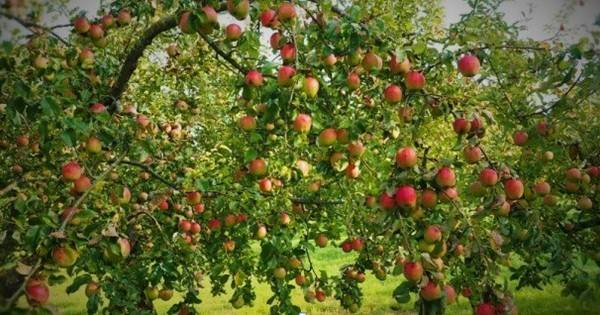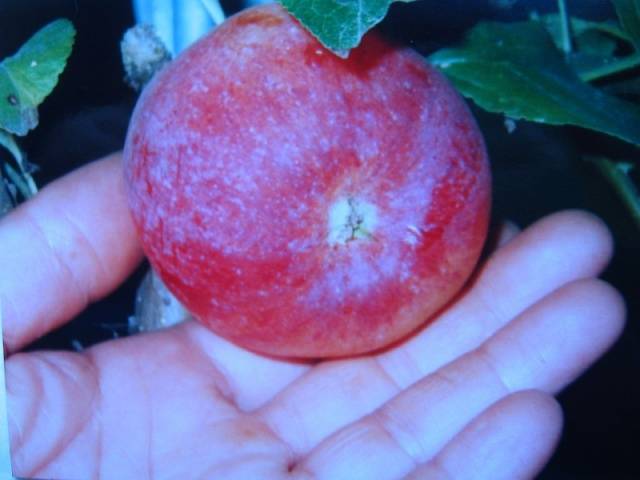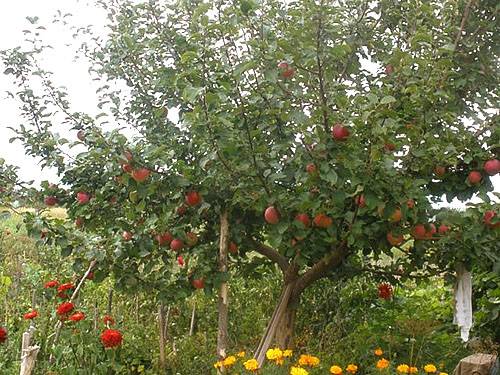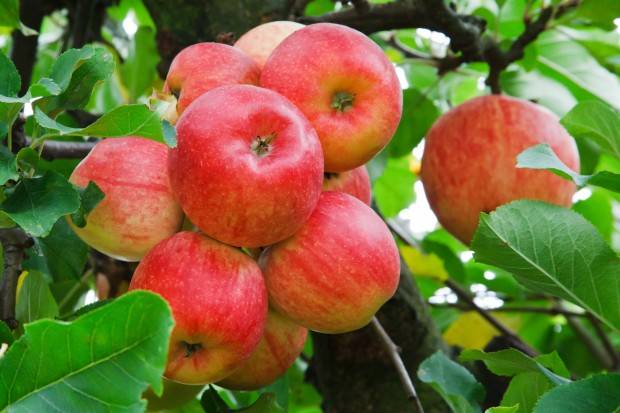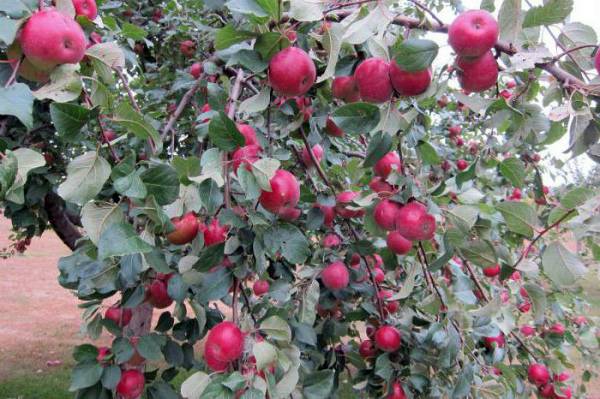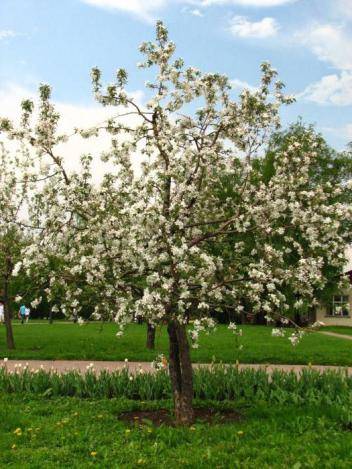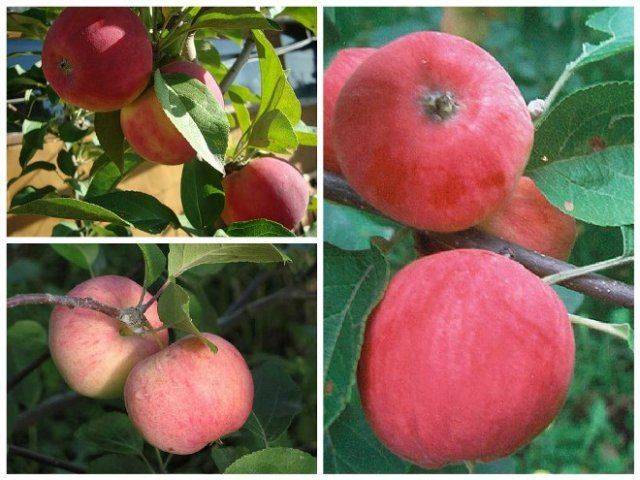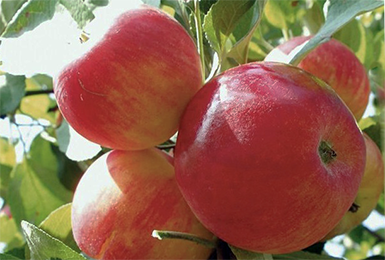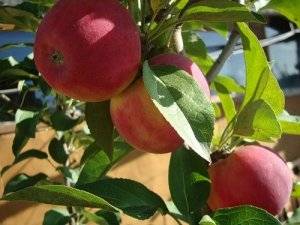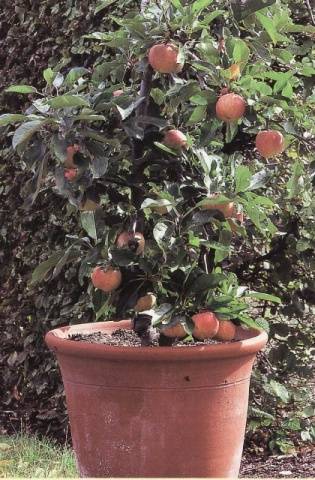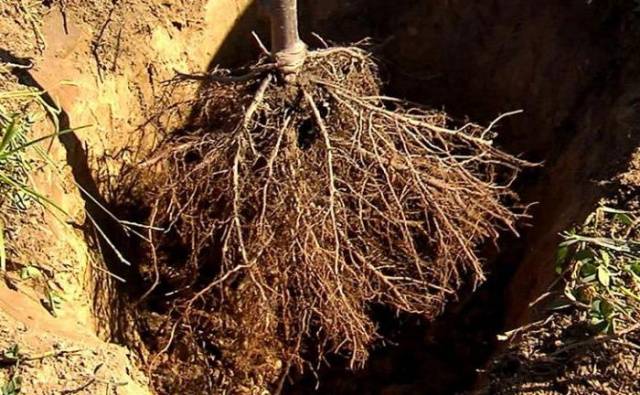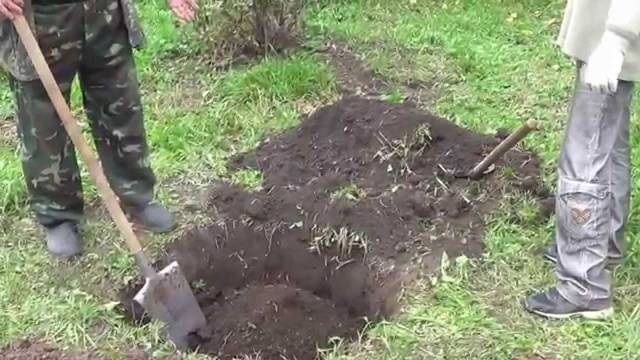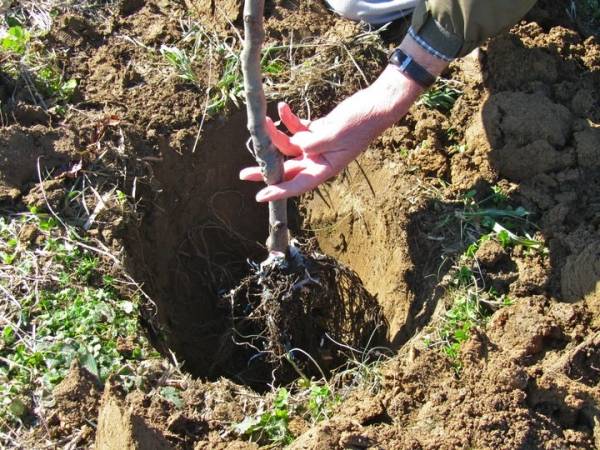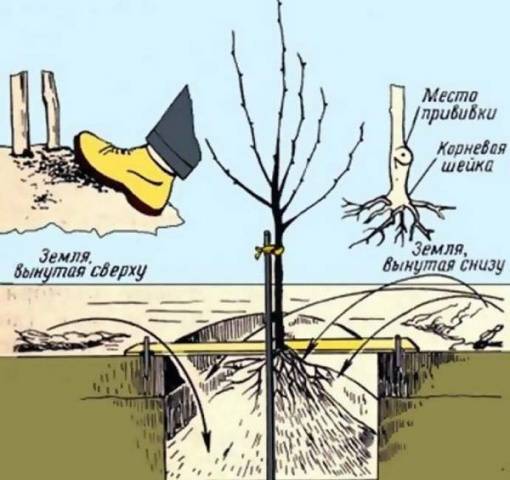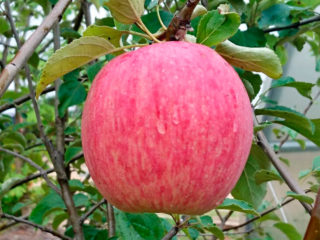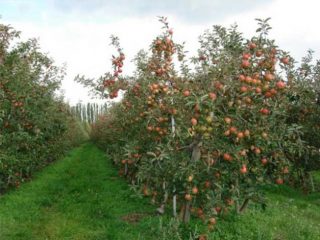Content
It is impossible to imagine any garden without an apple tree. Summer varieties are especially valuable, which allow you to enjoy healthy fruits after a long break. Apples of winter varieties after storage lose not only useful substances, but also taste. What a summer apple just plucked from a branch! Strong and aromatic, it just begs to be tasted as soon as possible.
In the middle lane, there are no problems with the choice of summer varieties of apples. Their assortment is large. All of them easily survive not too frosty winters. And what about gardeners who live where in winter and minus 50 is not uncommon? There are not many varieties of apple trees that can withstand such frost, so everyone is valuable.
But it is not enough to withstand extremely low temperatures. A great danger lies in wait for trees at the end of winter, when the daytime sun slowly awakens the apple trees, and the night frost can severely damage them. Therefore, the ability to tolerate low temperatures without loss must be accompanied by a full complex of winter hardiness in all parameters.
The parameters of the winter hardiness of the apple tree
They consist of the following components:
- resistance to frost of the early winter period - in November and early December. If at this time the plant has not completely been prepared for winter and has not received proper hardening, frost even at -25 degrees is quite capable of ruining it;
- maximum hardening - the ability to resist extreme freezing temperatures in the middle of winter;
- the ability to survive frost during thaws, as well as not suffer from sunburn;
- resistance to severe frosts following the thaw.
Only an apple variety that is resistant in all respects can be considered completely winter hardy. It will grow successfully in areas of risky farming, and is suitable where it is extreme.
We present to you one of these varieties - Silver Hoof, its full description and characteristics. Reviews about this apple variety are mostly positive, and the photo demonstrates the high quality of the fruit.
Description and characteristics
The Silver Hoof apple tree is the result of multiple crosses between large-fruited apple trees and the Siberian berry apple tree, known for its record winter hardiness. Having crossed the Snezhinka and the Rainbow apple trees among themselves, the breeder L.A. Kotov, at the Yekaterinburg Experimental Station, a new promising variety, the Silver Hoof, has been bred.
He got into the State Register of Breeding Achievements in 1988. Regions for its cultivation:
- West Siberian;
- Volgo-Vyatsky;
- Uralsky.
The latter region has entire gardens in which it is the leading variety. Tests have shown that the Silver Hoof is quite suitable for planting in the Non-Black Earth Zone of Russia.
Features of the variety:
- the growth vigor of the tree is average, the height of an adult tree is about 3 m, the crown is compact, rounded;
- the skeletal branches of this apple tree have a light bark with a yellowish tinge, they form an angle with the trunk close to 90 degrees;
- young shoots have a reddish color;
- leaves have a short petiole, almost rounded with slightly curved edges, slightly pubescent, their color is light green;
- the following generative organs are involved in fruiting in the Silver Hoof apple tree: last year's growths, spear and ringlet;
- the flowers of this boiling white apple are medium to large in size and cup-shaped.
- the first time apples of the Silver Hoof variety can be tasted 3 or 4 years after inoculation in the nursery, but the taste of apples finally appears after 2 years, then the apple tree begins to give a stable harvest;
- fruiting is annual, but only if there is a pollinator nearby, since the Silver Hoof apple tree is self-fertile, up to 160 kg of fruit can be harvested from one adult tree - this is a lot, given the average crown size. As a pollinator, it is best to plant Anis Sverdlovsky;
Special attention is paid to fruits.
- In the regions for which the Silver Hoof variety is zoned, the first apples ripen from mid-August, where it is warmer - much earlier.
- Their weight is average or slightly below average by conventional standards - about 90 g.
- The main color of apples is cream, they are covered with an attractive red-orange blush, which occupies most of the fruit, the subcutaneous points are practically invisible.
- The apple is very juicy, has a bright, rich taste with sweetness and acidity and fine-grained pulp.
- The apples of the Silver Hoof contain up to 13 mg of vitamin C and up to 112 mg of vitamin P, which makes them very useful. If you leave an apple on a branch until it is fully ripe, it begins to shine through, as it becomes translucent and very beautiful.
- The shelf life of Silver Hoof apples is considerable for a summer variety - up to 1.5 months. They are used fresh, as raw materials for workpieces, give a lot of juice and can be dried, since the content of dry matter in them is 13%. The fruits can be successfully transported without damaging them.
Presenting the description and characteristics of the Silver Hoof apple variety, you need to dwell on its resistance to diseases: the tree is sick in an average degree with scab, as well as fruit rot, therefore its cultivation will require attention and effort from the gardener, but they are more than compensated for by a good harvest of tasty, healthy and beautiful apples. To get it, you need to properly plant the apple tree and take good care of it.
Planting an apple tree
Before starting it, you need to choose a quality seedling. Apple tree seedlings with a closed root system take root best of all, but only if grown in a container for no more than 2 years.
The tree simply won't grow to the size of the variety.
Sometimes unscrupulous sellers will place an apple tree sapling in a container just before selling it. As a rule, the root system of the tree is severely injured at the same time, it simply may not take root. What signs indicate this:
- The earth on the surface is unconsolidated, loose.
- The apple tree sapling itself is easy to pull out of the pot, just pull a little on the stem.
It is better to refuse to buy such a seedling. Apple Tree Silver Hoof should be bought from a nursery with a proven track record. In an apple tree seedling with an open root system, you need to pay attention to the following points:
- in addition to a developed taproot, it must have suction roots, that is, a formed fibrous root system;
- the presence of dried or rotten roots is unacceptable. You can easily check this - when you remove the upper layer with a nail, the lower one should be white;
- the bark of the apple tree should not be dry;
- a one-year-old apple tree seedling does not have side branches, a two-year-old - with a stem height of about 40 cm, there should be at least three side branches.
How is it done planting an apple tree Silver Hoof? If several seedlings of this variety are planted, the distance between the trees can be foreseen as 4x4 m, since its crown is compact. When choosing a site, the illumination is taken into account - full throughout the day, as well as the level of groundwater - no closer than 2 m. The optimal soil for planting apple trees of any kind, not excluding the Silver Hoof, is loamy or sandy loam with a high humus content.Sandy soil can be improved by adding clay and peat, but it is undesirable to plant an apple tree in clay soil.
The planting hole must be prepared at least 2 weeks before purchasing a young Silver Hoof apple tree. It is enough to dig it with a diameter of 60 cm and the same depth. The topsoil up to 20 cm thick is laid separately. The apple planting algorithm will be as follows:
- The planting hole is covered by half or 2/3 of fertile soil mixed with ash - a half-liter jar per hole. This must be done in advance so that the soil has time to settle;
- pour an earthen mound;
- straighten the roots of the seedling;
- sprinkle with a previously prepared topsoil mixed with humus;
- there should be no voids in the soil, so the seedling needs to be shaken a little so that the soil is compacted.
If the Silver Hoof apple tree is planted in the fall, the soil in the near-trunk circle is sprinkled with fertilizer after the snow cover has established.
- the roots of the apple tree seedling are finally covered in such a way that the root collar is at the level of the soil;
- trample the ground in the trunk circle;
- watering is carried out - 2-3 buckets of water per hole, forming for this a side around the trunk circle;
- when planting, a peg is placed on the south side of the apple tree trunk.
Care after landing
The trunk circle needs to be mulched, it should be watered once a week, they do this in the spring for 2 months, and in the fall - until frost. In the future, caring for the Silver Hoof apple tree consists of watering in dry weather, 3-4 dressings during the growing season, annual crown formation and treatments for diseases and pests.
Details of caring for young apple trees can be found in the video:
